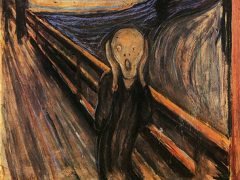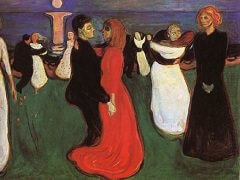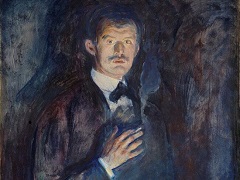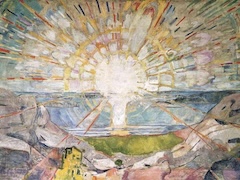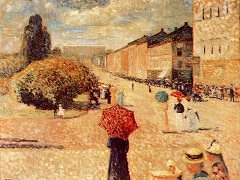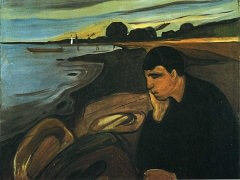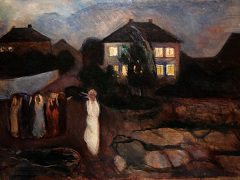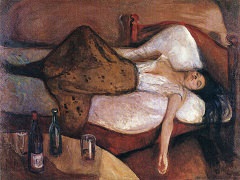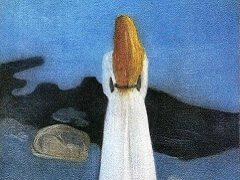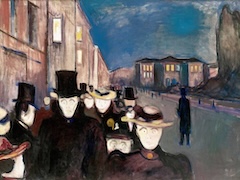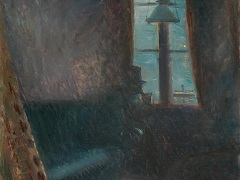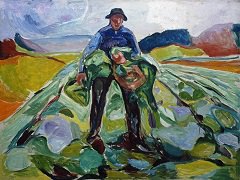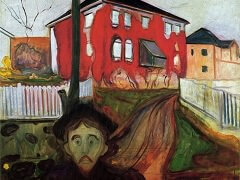The Sun, 1909 by Edvard Munch

The Sun is perhaps the greatest achievement of modern mural painting. Symmetrically structured, it occupied the enormous front space of Oslo University's assembly hall, dominating through size, unmitigated frontality, and power of imagery.
Munch extended the sun image in this mural from a partial to an embracing role, having first proposed a Nietzschean Mountain of Man that rose toward a sun-covered sky. Upon further reflection, and in compliance with advice from friends, he abandoned the problematical symbol to retain the sun image in pure, intense, and masculine dominance.
The barbs and shafts of light have affinities with German Expressionism of a different kind than Der Brucker; the more abstract and universal language of Wassily Kandinsky in the Munich Der Blaue Reiter. Hodler's Alpine visions are also evoked by the symmetry and centrality. Like Kandinsky, Munch is here both romantic and avant-garde, and the sun, indeed, is God.
Illuminated by the sunrays are the water of the ocean, the bare rocks of a Northern landscape, and a slim strip of verdant green that separated land and sea. A clean, straight horizon line divides the waters from sky. The great sun is all-pervasive, shinning from the heavens upon land and sea, its rays reaching out to all eternity. Inhuman itself, it is the source of all life.

